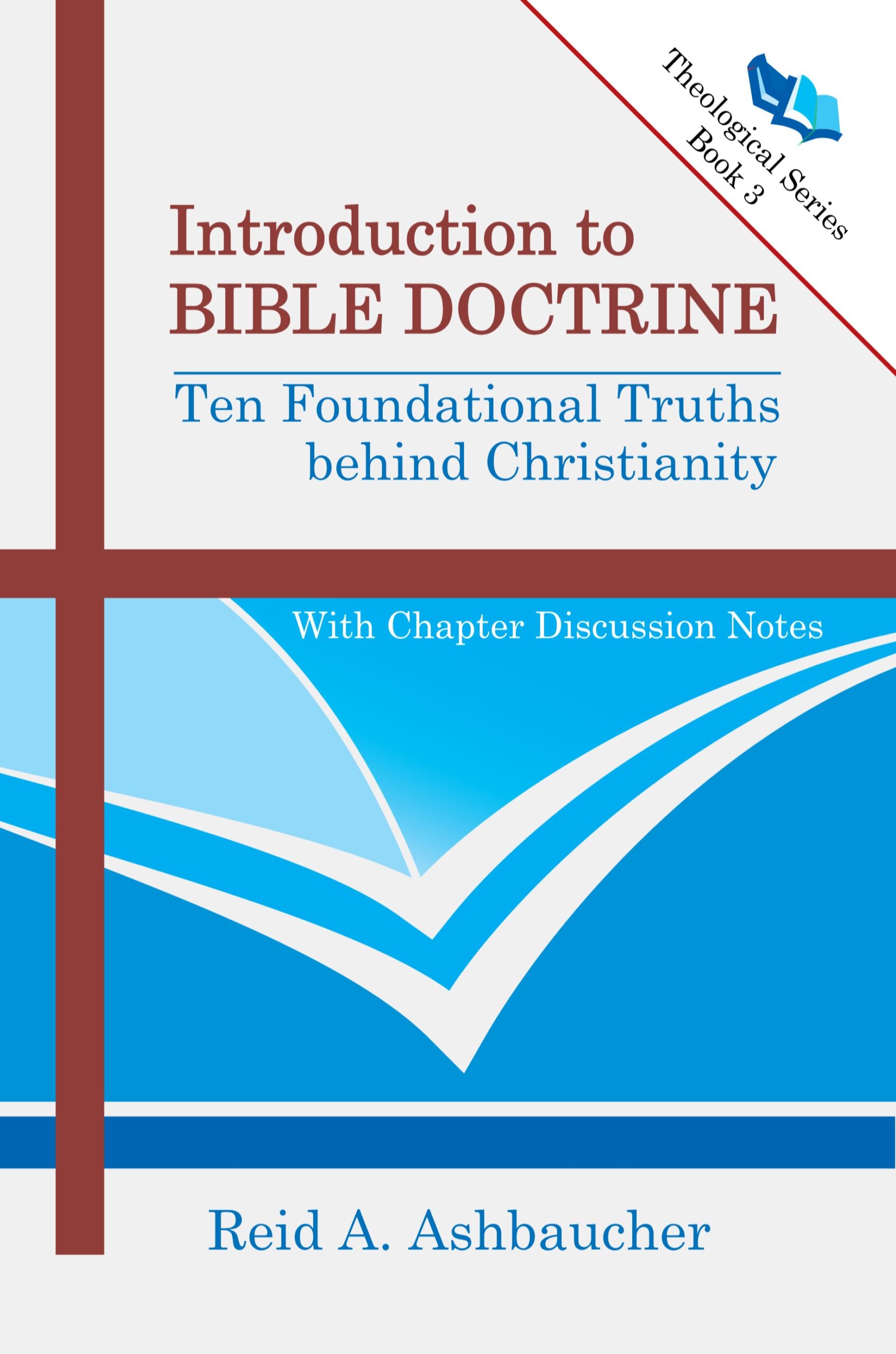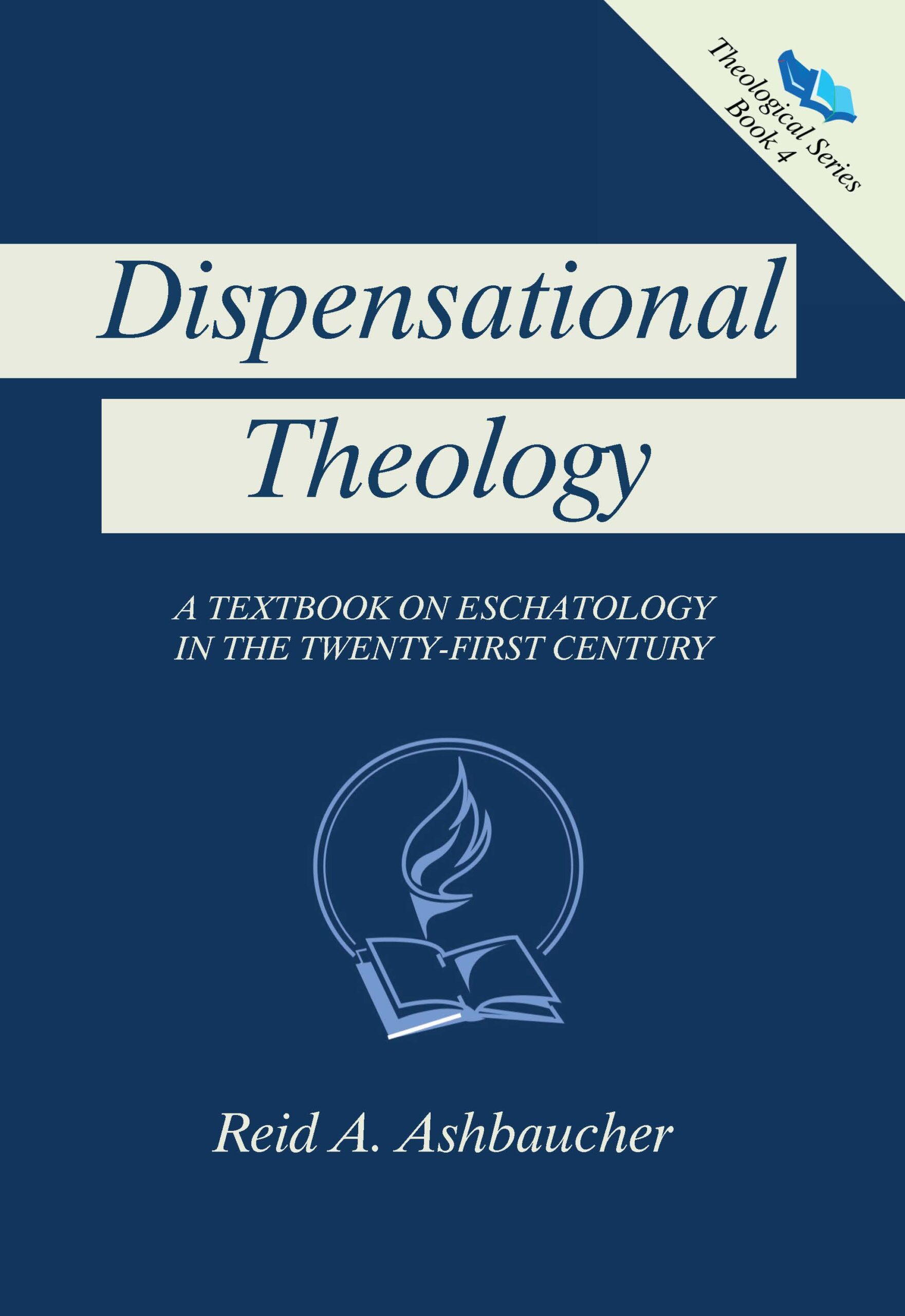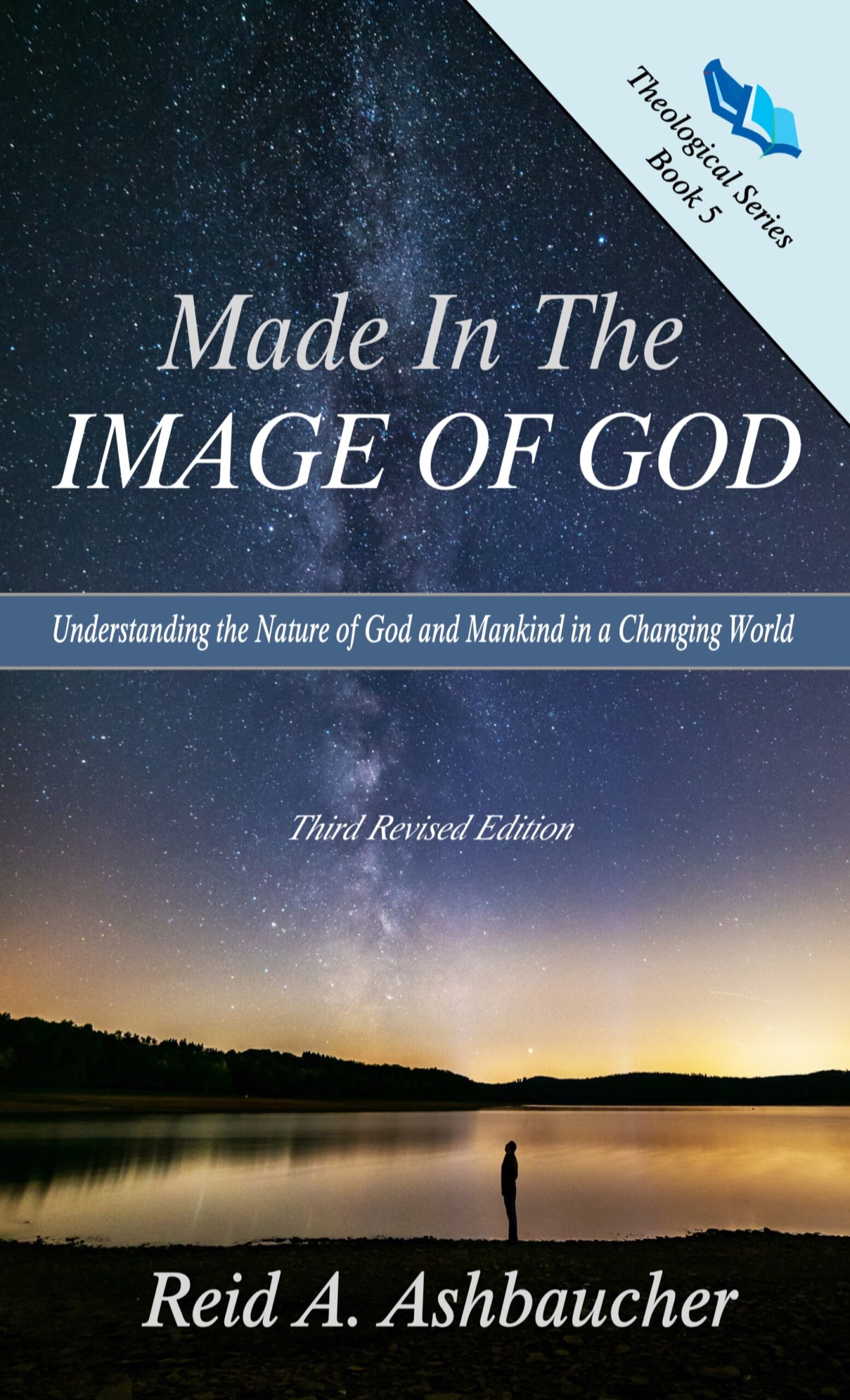Author: Reid Ashbaucher | Date of Writing: May 2007
Since the writing of this paper I have changed my views on the subject of the nature of Christ, as my current book “Made in the Image of God,” published in 2011, reflects.
The DoctrineBible doctrine is any subject within the Bible that is taught as a principle, law or commandment. Some would hold that the wisdom advice given in the book of Psalms and Proverbs could be classified as doctrine as well, because of the many principle concepts that can be applied to everyday life. of Simplicity
The doctrineBible doctrine is any subject within the Bible that is taught as a principle, law or commandment. Some would hold that the wisdom advice given in the book of Psalms and Proverbs could be classified as doctrine as well, because of the many principle concepts that can be applied to everyday life. of Simplicity is one not found in the realm of many biblical TheologicalAny person or subject that relates or is tied to the Study of God is considered theological. Example: A "theological student" is a person that studies the subject matter of God. A theological viewpoint is an opinion about God based on a persons interpretation of the Scriptures or Bible. studies. But in Philosophical Theology or Scholastic Philosophy, we are confronted with such a doctrineBible doctrine is any subject within the Bible that is taught as a principle, law or commandment. Some would hold that the wisdom advice given in the book of Psalms and Proverbs could be classified as doctrine as well, because of the many principle concepts that can be applied to everyday life. and perhaps a little confused with its purpose in the realm of ChristianAccording to the Bible, Christians are those that put their faith in Jesus Christ and follow him as Lord and King of their lives. To reject that Jesus is not equal in nature with God or reject the teaching of the Trinity of God would forfeit anyone's claim to be called Christian. (Acts 11:26, 26:28;... More theology. After spending five years in an academic setting studying biblical doctrineBible doctrine is any subject within the Bible that is taught as a principle, law or commandment. Some would hold that the wisdom advice given in the book of Psalms and Proverbs could be classified as doctrine as well, because of the many principle concepts that can be applied to everyday life. and theology it was a surprise to find such a doctrineBible doctrine is any subject within the Bible that is taught as a principle, law or commandment. Some would hold that the wisdom advice given in the book of Psalms and Proverbs could be classified as doctrine as well, because of the many principle concepts that can be applied to everyday life. debated in the ChristianAccording to the Bible, Christians are those that put their faith in Jesus Christ and follow him as Lord and King of their lives. To reject that Jesus is not equal in nature with God or reject the teaching of the Trinity of God would forfeit anyone's claim to be called Christian. (Acts 11:26, 26:28;... More theologicalAny person or subject that relates or is tied to the Study of God is considered theological. Example: A "theological student" is a person that studies the subject matter of God. A theological viewpoint is an opinion about God based on a persons interpretation of the Scriptures or Bible. world. Coming to this subject with no prior knowledge or bias to its content or meaning, I will dedicate my time in this paper to the analysis, observations, and conclusions of the course materials as I have read them and come to understand this subject.
The Analysis
In trying to analyze this subject one must first come to a consensus on what it means for God to be simple. For John Frame the definition is stated this way: “To say that God is simple in Scholastic philosophy, is to say that there is no composition in his being. Specifically, there is no composition of physical parts, form, and matter, actual and potential, genus and differentia, substance and accident, God and his essence, essence and attributes, attributes and one another, or essence and esse. God is not, then, in any sense made up of parts.”1
Dr. Frame concludes from all this, that God is not part of a godhood species or part of a class of gods nor is God accidental, that is, he did not come into being by causation or accident, but God is essential to his being and is his essence without metaphysicalThe term "metaphysical" as used here is referencing a reality of being. Both God and Man exist as beings and there are metaphysical differences of their natures. Therefore there are differences in the reality of the existence of both beings beyond the five senses of the human body. This is what meta... parts. Dr. Frame comes to this line of reasoning based on the following: “First, there can be nothing in him that is less, or less noble, then himself. Second, nothing in him can be removed from him, for nothing in him can not be. Third, the fact that he has many attributes in not something caused, for he is the first cause. Fourth, in God there can be no process of potentiality becoming actuality, because he is pure act, with no passive potentiality.”2 In the end, Dr. Frame concludes that “God’s attributes are not parts or divisions within the Godhead.” 3 This idea of God’s attributes classified as parts will be discussed later.
Dr. Morris defines the doctrineBible doctrine is any subject within the Bible that is taught as a principle, law or commandment. Some would hold that the wisdom advice given in the book of Psalms and Proverbs could be classified as doctrine as well, because of the many principle concepts that can be applied to everyday life. of divine simplicity this way:
… DoctrineBible doctrine is any subject within the Bible that is taught as a principle, law or commandment. Some would hold that the wisdom advice given in the book of Psalms and Proverbs could be classified as doctrine as well, because of the many principle concepts that can be applied to everyday life. of divine simplicity, the claim that, in his innermost being, God must be without any sort of metaphysicalThe term "metaphysical" as used here is referencing a reality of being. Both God and Man exist as beings and there are metaphysical differences of their natures. Therefore there are differences in the reality of the existence of both beings beyond the five senses of the human body. This is what meta... complexity whatsoever. This is usually understood to involve a threefold denial:
(1) God is without any spatial parts (the thesis of spatial simplicity),
(2) God is without any temporal parts (the thesis of temporal simplicity), and
(3) God is without the sort of metaphysicalThe term "metaphysical" as used here is referencing a reality of being. Both God and Man exist as beings and there are metaphysical differences of their natures. Therefore there are differences in the reality of the existence of both beings beyond the five senses of the human body. This is what meta... complexity which would be involved in his exemplifying numerous different properties ontologically distinct from himself (the thesis of property simplicity).4
Dr. Morris goes on to expound on the property of simplicity concluding that: “There is both necessity and contingency with respect to God. And there seems to be no other good way to capture this truth than to say that God has both necessary (essential) and contingent properties.”5 Again we see that the concept of God having properties is essential to the debate and will be discussed later.
Dr. Nash defines this doctrineBible doctrine is any subject within the Bible that is taught as a principle, law or commandment. Some would hold that the wisdom advice given in the book of Psalms and Proverbs could be classified as doctrine as well, because of the many principle concepts that can be applied to everyday life. this way: “The doctrineBible doctrine is any subject within the Bible that is taught as a principle, law or commandment. Some would hold that the wisdom advice given in the book of Psalms and Proverbs could be classified as doctrine as well, because of the many principle concepts that can be applied to everyday life. of simplicity is the belief that God is identical with His nature or His properties. Another aspect of the theory teaches that God’s essence is indivisible in the sense that God’s properties are not parts of God’s nature. Simplicity is therefore said to be unique to God; it marks off one of the fundamental differences between God’s nature and human nature.”6
From the Stanford Encyclopedia of Philosophy the article published March 20, 2006, on Divine Simplicity states the following:
According to the classical theism of Augustine, Anselm, Aquinas and their adherents, God is radically unlike creatures in that he is devoid of any complexity or composition, potency/act composition, and existence/essence composition. There is also no real distinction between God as subject of his attributes and his attributes. God is thus in a sense requiring clarification identical to each of his attributes, which implies that each attribute is identical to every other one. …God is what he has. As identical to each of his attributes, God is identical to his nature. And since his nature or essence is identical to his existence, God is identical to his existence. This is the doctrineBible doctrine is any subject within the Bible that is taught as a principle, law or commandment. Some would hold that the wisdom advice given in the book of Psalms and Proverbs could be classified as doctrine as well, because of the many principle concepts that can be applied to everyday life. of divine simplicity (DDS).7
Drawing from each of these definitions it is certain that we can agree on the following points as essential to the subject: One, God is spirit and has no physical parts to define. Two, God’s properties, if he has properties, is equal to his nature, and third, whatever we say about God, he is unified and one with himself and his attributes or nature.
It is interesting to see from the four sources noted, that all come to this subject from a different perspective and draw different conclusions. This seems to be the nature of philosophy in general – your logic is not my logic. Because of this, it seems that there must be some stabilizing influence to guide us to what the truth is concerning this topic; so I will, from now on, reference my logic to the ScripturesThe Scriptures, as spoken of on this site, represents the 66 books found in the Protestant Bible, with 39 books in the Old Testament and 27 books found in the New Testament. It is our view that these books were written between 1446 BC and 96 AD, representing a time span of about 1,500 years, by the ..., since it claims to be the source of all knowledge concerning God and truth.
The Issue of Property
When we speak about the properties of “matter,” our minds usually divert to a scientific notion. For example, the properties of water are H²O, or two-part Hydrogen and one part Oxygen. In this instance water is the sum of H²O. If you remove or add any part, it becomes something else, and if we change its form, it becomes something else as well. Water heated is steam; water frozen is ice. In this analogy properties really are a part of something tangible. In Merriam-Webster dictionary property is defined in the following manner:
A: a quality or trait belonging and especially peculiar to an individual or thing. B: an effect that an object has on another object or on the senses. C: VIRTUE. D: an attribute common to all members of a class.8
This term is said to originate from the Latin term “proprius” from the 14th century. In the ScripturesThe Scriptures, as spoken of on this site, represents the 66 books found in the Protestant Bible, with 39 books in the Old Testament and 27 books found in the New Testament. It is our view that these books were written between 1446 BC and 96 AD, representing a time span of about 1,500 years, by the ..., “property” was always used to refer to physical possessions and or land. Granted, knowledge changes and so does the meaning of words, but could there be another solution to understanding and defining God and His nature? Not for technicality sake; but for the sake of understanding and the discovering of God, who revealed Himself to man. To use the term “property” for the physical makeup of a human being is acceptable because our bodies do have parts that make it up and cause function. However, to use this term for the spirit world of God seems inadequate because there is nobody, He has no moving parts, and if He chooses to change his form and become Jesus the God-man, He is still God. So what are the appropriate terms to explain God?
The ScripturesThe Scriptures, as spoken of on this site, represents the 66 books found in the Protestant Bible, with 39 books in the Old Testament and 27 books found in the New Testament. It is our view that these books were written between 1446 BC and 96 AD, representing a time span of about 1,500 years, by the ... speak of the spiritual side of man as being made up of soul and spirit. There are those that believe soul and spirit are one and the same, but the ScripturesThe Scriptures, as spoken of on this site, represents the 66 books found in the Protestant Bible, with 39 books in the Old Testament and 27 books found in the New Testament. It is our view that these books were written between 1446 BC and 96 AD, representing a time span of about 1,500 years, by the ... seem to make a distinction. “Now may the God of peace Himself sanctify you entirely; and may your spirit and soul and body be preserved complete, without blame at the coming of our Lord Jesus ChristJesus Christ is the Son of the creator God, sharing in the same nature as God the Father and God the Holy Spirit. As Jesus says, "I and the Father are one." (John 10:30; NASB).”9 “For the word of God is living and active and sharper than any two-edged sword, and piercing as far as the division of soul and spirit, of both joints and marrow, and able to judge the thoughts and intentions of the heart.”10
The phrase, “division of soul and spirit” is a very interesting concept since they function as a single unit. You say function, what are their functions? If you study the word soul and spirit in the ScripturesThe Scriptures, as spoken of on this site, represents the 66 books found in the Protestant Bible, with 39 books in the Old Testament and 27 books found in the New Testament. It is our view that these books were written between 1446 BC and 96 AD, representing a time span of about 1,500 years, by the ... you will discover that soul is always used in reference to personhood, that part of us that demonstrates intellect, emotion, and will. But spirit is much more elusive, it is difficult to decipher and comprehend because the ScripturesThe Scriptures, as spoken of on this site, represents the 66 books found in the Protestant Bible, with 39 books in the Old Testament and 27 books found in the New Testament. It is our view that these books were written between 1446 BC and 96 AD, representing a time span of about 1,500 years, by the ... use the same word for spirit in reference to multiple usages. The Scripture speaks of: “the spirit of man,” “the Holy Spirit,” “evil spirits,” “the spirit of attitude” and “the spirit of God,” not to be confused with the person of the Holy Spirit, for God is spirit, is he not? Therefore, the bottom line is, depending on what spirit we are referring to, depends on what property or attributes we should contribute to it. When we are talking about the “spirit of man,” it is my opinion, base on over 450 hours of biblical research on soul and spirit, that what we are talking about is our old nature or that part of us that formulates or reflects attitudes.
If we reflect on our soul and spirit, can we say that this part of our personhood has parts? What parts make up our soul and spirit? I would contend that when we are speaking of the spiritual world there is no such thing as parts only attributes. The question becomes if we eliminate the term parts from the understanding of properties, can we then use this term in reference to attributes? I say no because the term “properties” carries too many negative connotations or biases tainting our ability to comprehend the nature of God. So what is the answer to our dilemma? It is my suggestion that we stick to the first dictionary meaning of the word “attribute” which is, “an inherent characteristic or quality.”11 This definition seems to be more in harmony with the understanding of the ScripturesThe Scriptures, as spoken of on this site, represents the 66 books found in the Protestant Bible, with 39 books in the Old Testament and 27 books found in the New Testament. It is our view that these books were written between 1446 BC and 96 AD, representing a time span of about 1,500 years, by the .... God has characteristics and qualities, not parts or elements as H²O has that can be added or subtracted from. God is a whole entity with attributes or characteristics.
God’s Characteristics
The ScripturesThe Scriptures, as spoken of on this site, represents the 66 books found in the Protestant Bible, with 39 books in the Old Testament and 27 books found in the New Testament. It is our view that these books were written between 1446 BC and 96 AD, representing a time span of about 1,500 years, by the ... tell us who and what God is and the characteristics He takes on. The ScripturesThe Scriptures, as spoken of on this site, represents the 66 books found in the Protestant Bible, with 39 books in the Old Testament and 27 books found in the New Testament. It is our view that these books were written between 1446 BC and 96 AD, representing a time span of about 1,500 years, by the ... tell us that God is spirit, singular and that this spirit contains three persons. The ScripturesThe Scriptures, as spoken of on this site, represents the 66 books found in the Protestant Bible, with 39 books in the Old Testament and 27 books found in the New Testament. It is our view that these books were written between 1446 BC and 96 AD, representing a time span of about 1,500 years, by the ... also tell us that God made man in his image. It is my contention that this means we are in the mirror image of God, that is, man is a soul (personhood) with a spirit inside it acting as our old nature, and God is a spirit (His nature) with three souls inside it (3 persons), all sharing a single divine nature, thus God is one essence and three persons just as the orthodox church has taught for 2000 years. God’s spirit has attributes and the individual persons of the Godhead have attributes, not parts or properties. God can change form and still be God because God’s spirit or nature never changes, just as the ScripturesThe Scriptures, as spoken of on this site, represents the 66 books found in the Protestant Bible, with 39 books in the Old Testament and 27 books found in the New Testament. It is our view that these books were written between 1446 BC and 96 AD, representing a time span of about 1,500 years, by the ... proclaim. God the Father can be in heaven as a person, while Jesus can be on earth as a person, and the Holy Spirit can indwell others as a person – all at the same time, and all the while God’s nature has not changed. Because God is free to do what he pleases, He can limit his presence, power, or knowledge as He so chooses without the violation of changing his nature.
Therefore, the question is, “what is his nature?” God’s spirit is his nature, just as our spirit is our nature. God’s spirit is Omnipotent, Omnipresence, and is that part of God that communicates, formulates attitude and position in creation, as we understand it. All the other attributes of God belong to the persons of the Godhead. For example, God is love; love is an attribute of God’s spirit because it is an attitude. God’s omniscience is an attribute of God the Father. Why do I say this? Two reasons: First, Jesus said only my Father in heaven knows when I will return to earth after my ascension. Some have concluded this to be so because in His human form His knowledge was limited. It is my suggestion that God the Father kept this from our Lord for a purpose, and that purpose was, so Jesus would not have to answer that question when asked by the disciples or for us in history. The second reason I believe that God the Father has this attribute is, because He has been the only person in the Godhead that has made that claim. The question now becomes, does that make the other two persons of the Godhead less than God? The answer is, no! Why? Because God is God because of his nature, not his abilities. God as a triune being is holy, righteous, good, love, power, and present everywhere. The ScripturesThe Scriptures, as spoken of on this site, represents the 66 books found in the Protestant Bible, with 39 books in the Old Testament and 27 books found in the New Testament. It is our view that these books were written between 1446 BC and 96 AD, representing a time span of about 1,500 years, by the ... seem to teach that within the Godhead there are shared responsibilities and submission to one another. None of this makes God any less God. This is why whether God is in or out of time, or whether one of the persons takes on another form or responsibility, God’s nature never changes. The key to this debate all lies within how you understand the nature of God and reconcile his attributes. More will be said on this in my conclusion.
Man can never be God because of the metaphysicalThe term "metaphysical" as used here is referencing a reality of being. Both God and Man exist as beings and there are metaphysical differences of their natures. Therefore there are differences in the reality of the existence of both beings beyond the five senses of the human body. This is what meta... differences between us as designed by God. By nature, we cannot be present everywhere or have all knowledge, be all-powerful, or since the fall, be holy as He is holy.
The model presented here is unique and my own, but perhaps in another time, in a much larger work these arguments and model will be developed into a much more coherent work for understanding all that I am trying to say, but for now it is time to move on to some observations concerning simplicity as presented by others.
Observations
Dr. Frame’s final analysis on this subject leads to a good overall view of this doctrineBible doctrine is any subject within the Bible that is taught as a principle, law or commandment. Some would hold that the wisdom advice given in the book of Psalms and Proverbs could be classified as doctrine as well, because of the many principle concepts that can be applied to everyday life. but leads me to believe he is trying to dodge the bullet on who the triune God is in relationship to this doctrineBible doctrine is any subject within the Bible that is taught as a principle, law or commandment. Some would hold that the wisdom advice given in the book of Psalms and Proverbs could be classified as doctrine as well, because of the many principle concepts that can be applied to everyday life.. Consider the following:
God relates to us as a whole person, not as a collection of attributes. The attributes merely describe different things about him. They are a kind of shorthand for talking about that person. Everything he says and does is good, right, true, eternal, wise, and so on.
As we shall see later, the triunity of God does not conflict with his simplicity, understood as I have described it. Each of the three persons is “in” the other two (circumincessio), and therefore each exhausts the divine nature, just as every attribute includes the whole divine nature.12
Is God three distinct persons or is God one person and three minds? Dr. Morris argues against simplicity on the basis of how you view properties and complexity. It seems that if you believe God is simple, then God cannot be complex, and if you believe God is complex, then God must have many properties that lead to a God having a dependence on something. But is it possible for God to be both simple and complex at the same time?
If God is spirit, singular, and this spirit was the sum of all attributes described in the ScripturesThe Scriptures, as spoken of on this site, represents the 66 books found in the Protestant Bible, with 39 books in the Old Testament and 27 books found in the New Testament. It is our view that these books were written between 1446 BC and 96 AD, representing a time span of about 1,500 years, by the ... and we called this spirit God’s nature, then placed within God’s spirit his tri- personhood, would this not make God simple yet complex at the same time?
It is my observation that the arguments about God being “simple” or “not simple” are over our understanding of how we view the conceptsThe term CONCEPT used on this website is not referring to abstract ideas of the mind. It is referring to truths that are organized by subject matter or issues and supported by the Scriptures through direct statements or good reasoning. (A concept stated in one of my books.) Scriptural evidence suppo... of property and complexity. Is it possible that there is another choice?
Dr. Frame believes God’s nature and essence are one and the same. I agree with this assessment but would add that this is true because of God’s metaphysicalThe term "metaphysical" as used here is referencing a reality of being. Both God and Man exist as beings and there are metaphysical differences of their natures. Therefore there are differences in the reality of the existence of both beings beyond the five senses of the human body. This is what meta... makeup. God is not a thing or a single property, but God is a living being who exists as a spirit/soul entity. And this living entity can be described as the sum of all its revealed attributes.
Conclusion
It is my opinion that the debate over simplicity is really over our understanding of the metaphysicalThe term "metaphysical" as used here is referencing a reality of being. Both God and Man exist as beings and there are metaphysical differences of their natures. Therefore there are differences in the reality of the existence of both beings beyond the five senses of the human body. This is what meta... relationship between God and Man. In Systematic, Dogmatic, and Biblical theology the concept of God’s personhood, being tied to soulship, is not taught nor understood. Yet in the Old TestamentThe Old Testament in the Bible is a collection of 39 books, written in Hebrew and Aramaic, between 1446 B.C. and 425 B.C. They were then translated into a Greek manuscript called the Septuagint between the second and forth centuries B.C. Jesus referred to the Hebrew manuscripts as the Law, the Proph... More, we find God the Father speaking of his soul six times. (Leviticus 26:11, Psalms 11:5 and Jeremiah 5:9, 5:29, 6:8, 9:9) And in the New TestamentThe New Testament is a collection of 27 books, all written in Greek within the first century A.D. Twenty three of these books were written by the Apostles of Jesus Christ, two were written by Dr. Luke a Christian medical doctor who traveled with the Apostle Paul, and two books were written by James ... More Jesus speaks of his soul twice. (Matthew 26:38 and again in John 12:27) The Holy Spirit has no mention of his soul, I believe because He has always acted in ScripturesThe Scriptures, as spoken of on this site, represents the 66 books found in the Protestant Bible, with 39 books in the Old Testament and 27 books found in the New Testament. It is our view that these books were written between 1446 BC and 96 AD, representing a time span of about 1,500 years, by the ... as a silent partner. However, if personhood is defined as I have suggested, then the Holy Spirit as a person has a soul.
Some would argue that Jesus has a soul as part of his humanity. If this is true, was Jesus a person before His incarnation? And did he literally change form as a person? If the answer is yes, then God just changed his metaphysicalThe term "metaphysical" as used here is referencing a reality of being. Both God and Man exist as beings and there are metaphysical differences of their natures. Therefore there are differences in the reality of the existence of both beings beyond the five senses of the human body. This is what meta... nature, which is a violation of his being. The Church has always rejected that Christ was two persons but only accepted that He had two natures. Based on my model, I question even the two nature concept. It is my contention that Jesus had his own soul and spirit before His incarnation and still had them after His death and resurrection. Why? Because Jesus was and will always be a divine person before, during, and after time. If you search the ScripturesThe Scriptures, as spoken of on this site, represents the 66 books found in the Protestant Bible, with 39 books in the Old Testament and 27 books found in the New Testament. It is our view that these books were written between 1446 BC and 96 AD, representing a time span of about 1,500 years, by the ... you will not find any mention of Christ having a human nature, only that He took on the form of a man. It was the conclusion of the Church councils through church creeds that developed the two nature concept of Christ.
If we understood the God of the universe as I have described Him, the many questions of God and the questions of “how can He?” would become clearer. In the end, God cannot change his nature and is limited to the sum of all his attributes. God cannot do anything that would be contrary to his nature to include denying Himself.
Is God simple? Yes. Is God complex? Yes. Does God have parts or properties? It is my opinion that He does not, and no matter how you divide God up or understand His metaphysicalThe term "metaphysical" as used here is referencing a reality of being. Both God and Man exist as beings and there are metaphysical differences of their natures. Therefore there are differences in the reality of the existence of both beings beyond the five senses of the human body. This is what meta... makeup, one thing the Church has always agreed upon and that is, God is a triune being, the creator of the universe and the only God in existence who is worthy to be called Lord.
Endnotes
- John Frame, The DoctrineBible doctrine is any subject within the Bible that is taught as a principle, law or commandment. Some would hold that the wisdom advice given in the book of Psalms and Proverbs could be classified as doctrine as well, because of the many principle concepts that can be applied to everyday life. of God (Phillipsburg: P & R Publishing Company, 2002), 225.
- John Frame, The DoctrineBible doctrine is any subject within the Bible that is taught as a principle, law or commandment. Some would hold that the wisdom advice given in the book of Psalms and Proverbs could be classified as doctrine as well, because of the many principle concepts that can be applied to everyday life. of God, 226.
- Ibid., 226
- Thomas Morris, Our Idea of God (Downers Grove: Intervarsity Press, 1991), 113.
- Ibid., 117.
- Ronald Nash, The Concept of God (Grand Rapids: Zondervan Publishing House, 1983), 85.
- “Divine Simplicity”, Stanford Encyclopedia of Philosophy, 20 March 2006 [database on – line]; available from https://plato.stanford.edu/entries/divine-simplicity/ ; Internet; accessed 21 March 2007.
- Merriam-Webster’s Collegiate Dictionary, 11th ed., s. v. “property” [CD-ROM] (Merriam-Webster Incorporated, 2003).
- 1 Thess. 5:23 (NASBNASB stands for "New American Standard" version of the Bible. The NASB was produced through the Lockman Foundation in 1960 and its translation is based on the Hebrew text and the Alexandrian Text type of the Greek New Testament, with NT copies dating as early as the second century A.D.)
- Heb. 4:12 (NASBNASB stands for "New American Standard" version of the Bible. The NASB was produced through the Lockman Foundation in 1960 and its translation is based on the Hebrew text and the Alexandrian Text type of the Greek New Testament, with NT copies dating as early as the second century A.D.)
- Merriam-Webster’s Collegiate Dictionary, 11th ed., s. v. “attribute” CD-ROM] (Merriam-Webster Incorporated, 2003).
- Frame, The DoctrineBible doctrine is any subject within the Bible that is taught as a principle, law or commandment. Some would hold that the wisdom advice given in the book of Psalms and Proverbs could be classified as doctrine as well, because of the many principle concepts that can be applied to everyday life. of God, 230.
Works Cited
- Frame, John. The DoctrineBible doctrine is any subject within the Bible that is taught as a principle, law or commandment. Some would hold that the wisdom advice given in the book of Psalms and Proverbs could be classified as doctrine as well, because of the many principle concepts that can be applied to everyday life. of God. Phillipsburg: P & R Publishing Company, 2002.
- Morris, Thomas. Our Idea of God. Downers Grove: Intervarsity Press, 1991.
- Nash, Ronald. The Concept of God. Grand Rapids: Zondervan Publishing House, 1983.
- “Divine Simplicity”, Stanford Encyclopedia of Philosophy, 20 March 2006
[database on-line]; available from https://plato.stanford.edu/entries/divine-simplicity/ ; Internet; accessed 21 March 2007.










